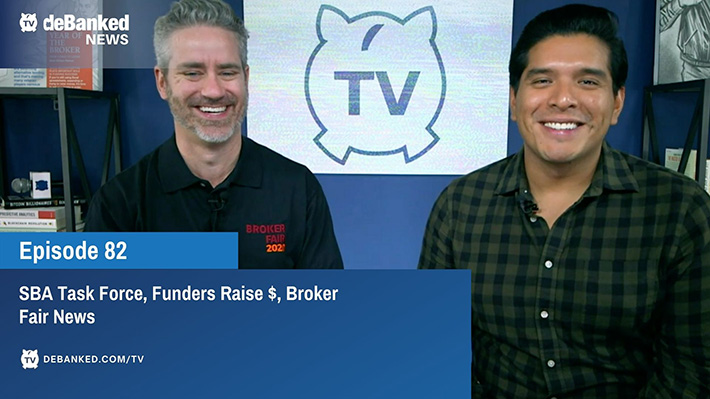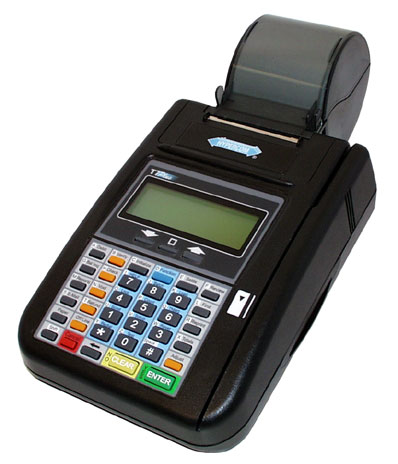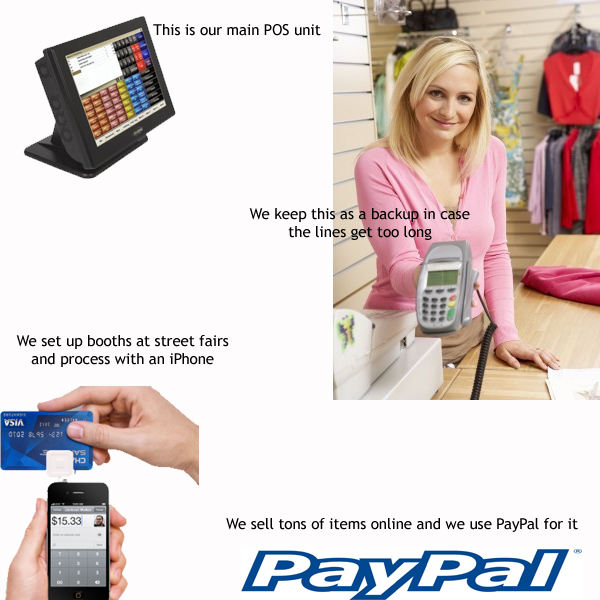Related Headlines
| 12/07/2023 | Merchant Growth secures $300M FF facility |
| 06/13/2023 | Merchant Growth to fund Loop's SMB deals |
| 10/18/2021 | Merchant Growth secures C$4.1M equity cap |
| 07/19/2021 | Merchant Growth acquires Company Capital |
| 02/16/2021 | Merchant Growth launches LOC product |
Related Videos
Episode 82 - SBA, Capital Raising, Broker Fair News |
Stories
Merchant Growth Partners with goeasy to Provide Funding via Physical Branches
December 11, 2019 This month Merchant Growth, the Vancouver-based alternative finance company, announced its partnership with goeasy Ltd. that will see Merchant Growth’s services being offered in goeasy branches throughout Canada. Beginning with British Columbia, Alberta, and Saskatchewan in 2019, Merchant Growth aims to have expanded to the remaining provinces in the first quarter of 2020.
This month Merchant Growth, the Vancouver-based alternative finance company, announced its partnership with goeasy Ltd. that will see Merchant Growth’s services being offered in goeasy branches throughout Canada. Beginning with British Columbia, Alberta, and Saskatchewan in 2019, Merchant Growth aims to have expanded to the remaining provinces in the first quarter of 2020.
Under the partnership, goeasy will receive compensation from Merchant Growth for all loans made through them while Merchant Growth will provide the capital.
“goeasy is a unique Canadian success and they’ve done that by being disciplined managers, by putting their customers first, and by building a great reputation for themselves in the industry,” said David Gens, Merchant Growth’s President and CEO. “And what we see in them is an ideal partner in that they have the market reach in terms of brand recognition and locations around the country.”
It is the latter of these factors that make the deal stand out. Given the industry’s standard of digital applications, goeasy and Merchant Growth’s return to brick and mortar branches that offer live human managers, clerks, and even physical paper, marks a turn back towards more historical methods of doing business.
Gens commented on this, stating that “there’s something to be said for face-to-face interactions and for that reason I don’t think you’re ever going to go down to having no bank branches … Having a physical location where you can chat with people about your financial needs is something that will always exist as far as I can see.”
Merchant Advance Capital Rebrands to Merchant Growth
July 3, 2019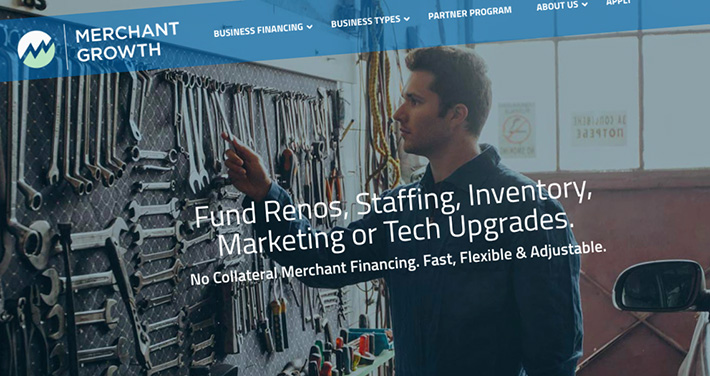 Merchant Advance Capital, which trumpets itself as Canada’s fastest and most transparent small business financier, is rebranding as Merchant Growth.
Merchant Advance Capital, which trumpets itself as Canada’s fastest and most transparent small business financier, is rebranding as Merchant Growth.
The company has offices in Vancouver, BC and Toronto, ON and was founded in 2009.
“I founded our company out of my apartment 10 years ago,” David Gens is quoted as saying in a company announcement. Gens is the company’s president & CEO. “Back then our mission was simply to provide credit to small businesses, and we did that by providing one product, called a ‘merchant advance’. Today, we offer a comprehensive suite of financing solutions delivered with unparalleled convenience. In doing so, our mission has expanded to allowing business owners to achieve unconstrained growth, while reducing the administrative stress of running a business. As we’ve transformed our focus from one credit product to this far-reaching mission, we felt the need for our name to reflect this. We are Merchant Growth.”
Gens has been an oft-quoted source in deBanked over the years. His company closed on a $30 million debt facility last year with Comvest Credit Partners.
Gens is also speaking at deBanked CONNECT Toronto on July 25, 2019. You can register to attend at www.debankedcanada.com.
CFG Merchant Solutions Upsizes Corporate Note to $30.0 Million
March 6, 2024NEW YORK, NY. March 6, 2024 – CFG Merchant Solutions, LLC (“CFGMS” or the “Company”), a technology-enabled specialty finance and alternative funding provider, announced the upsize to $30.0 million of its investment-grade corporate note. The transaction was assigned a BBB rating by a nationally recognized statistical ratings organization.
Since its founding in 2015, CFGMS has a proven track record of asset performance and profitability, and has funded more than $1.3 billion to over 31,000 small and medium-sized businesses (SMBs) across diverse industries throughout the U.S. The Company plans to use the proceeds from the issuance to support continued growth of the business.
Our business has experienced considerable growth as banks and other funders have pulled back on credit over the past year,” said Andrew Coon, Chief Executive Officer of CFGMS. “This additional capital will help us continue our momentum in serving SMBs across the U.S.”
Bill Gallagher, President of CFGMS, added, “At CFGMS, we believe our unique platform is differentiated from other funders across the space. We are pleased that institutional investors share this view and continue to support us. This flexible capital will be very valuable as we seek to gain further market share.”
Brean Capital, LLC served as the Company’s exclusive financial advisor and sole placement agent in connection with the transaction.
About CFG Merchant Solutions
CFG Merchant Solutions (“CFGMS”) is an independent, technology-enabled alternative funding platform focused on providing capital access to small and mid-sized businesses that have historically been underserved by traditional financial institutions and may have experienced challenges obtaining timely financing. The Company utilizes its historical transactional data, proprietary underwriting, predictive analytics, and electronic payment technologies and platforms to assess risk, and provide access to flexible and timely capital.
For additional information about the Company, visit: https://cfgmerchantsolutions.com/.
Contact:
Name: Richard Polgar
Title: Chief Financial Officer
rpolgar@cfgms.com
Lightspeed’s Merchant Cash Advance Business is Accelerating
February 8, 2024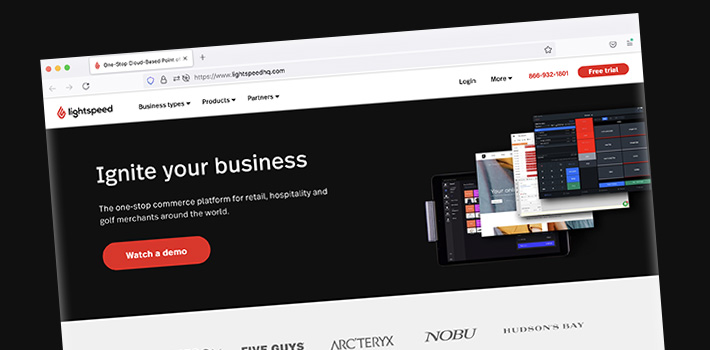 “Our capital business has grown—it’s doubled from over a year ago and we expect that trajectory to continue. And capital revenue comes in at a 95% gross margin,” said Lightspeed CFO Asha Bakshani in the company’s most recent quarterly earnings call.
“Our capital business has grown—it’s doubled from over a year ago and we expect that trajectory to continue. And capital revenue comes in at a 95% gross margin,” said Lightspeed CFO Asha Bakshani in the company’s most recent quarterly earnings call.
Although Lightspeed is more widely known as a global e-commerce platform, analysts have been encouraging the company to ramp up its merchant cash advance business because of the considerable margins it produces. As such Lightspeed through Lightspeed Capital has been doing just that. And not just in the US. “We launched Lightspeed Capital in France, the Netherlands and Belgium this quarter, and Germany shortly after the quarter, expanding our global footprint for this high-margin offering,” said company CEO Jean Paul Chauvet.
Origination growth has been slow, however, because the company has been concerned with the potential impact it will have on its own available operating cash. This fear seems slightly overblown as Lightspeed reported having $750M in cash as of the close of the most recent quarter and said that merchant cash advance originations were responsible for using up only $8.3M in cash during the quarter.
The Growth of IDIQ
September 7, 2023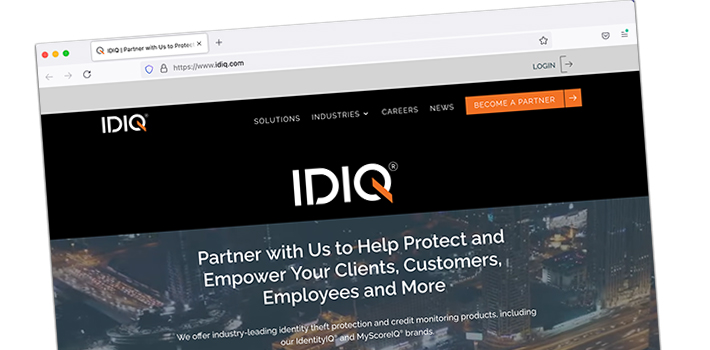 IDIQ is no stranger to recognition. A leader in identity theft protection, the company has earned a spot on the Inc. 5000 list for four consecutive years. Founded in 2009, IDIQ began its journey with a handful of employees in a Southern California home before expanding to an office building in Temecula, CA. The Temecula location grew to seven buildings, opening additional offices in Illinois, Florida, and Arizona, along with hubs in Texas and New York.
IDIQ is no stranger to recognition. A leader in identity theft protection, the company has earned a spot on the Inc. 5000 list for four consecutive years. Founded in 2009, IDIQ began its journey with a handful of employees in a Southern California home before expanding to an office building in Temecula, CA. The Temecula location grew to seven buildings, opening additional offices in Illinois, Florida, and Arizona, along with hubs in Texas and New York.
“Yes, we’ve grown rapidly,” said Bryan Sullivan, Chief Operating and Financial Officer at IDIQ. “We’ve hired more than 150 employees in the last three years to facilitate our business growth. We currently have about 250 employees.”
According to Sullivan, the COVID-19 pandemic catalyzed two significant trends that contributed to IDIQ’s growth. First, there was a spike in online scams and identity theft. Second, there was an increase in consumer finance transactions, including credit card use, home purchases, and refinances.
Sullivan recalled one case in particular: “We had a member who received an alert that two companies, not accounts but companies, had been opened in a different state by an identity thief using their name and personal information and had applied for business loans,” said Sullivan. “We alerted the member to the fraud and helped them get the bogus companies eliminated.”
“Without these alerts it might have taken years for the victim to find out about the identity theft and bogus companies and loans in their name,” Sullivan explained. “And, once found out, it would take months if not years to recover their identity and credit and cost thousands of dollars in lost wages and other costs.”
An IDIQ customer can be pretty much anybody since they now have several brands. IdentityIQ, which focuses on identity theft and credit monitoring is their flagship. The others include MyScoreIQ, Resident-Link, Countrywide Pre-Paid Legal Services, and Credit & Debt.
In the small business finance industry, IDIQ is used several ways. In one example, brokers can offer merchants access to their credit reports and in turn use that data to help them figure out the best path to pursue for funding.
“Our strategy has been to continually expand our product offerings,” he said. “Adding features and benefits that protect and educate consumers as well as improve their financial wellness and help them meet their financial goals.”
CFG Merchant Solutions Closes $20 Million Corporate Note Financing
March 6, 2023NEW YORK, NY. March 6, 2023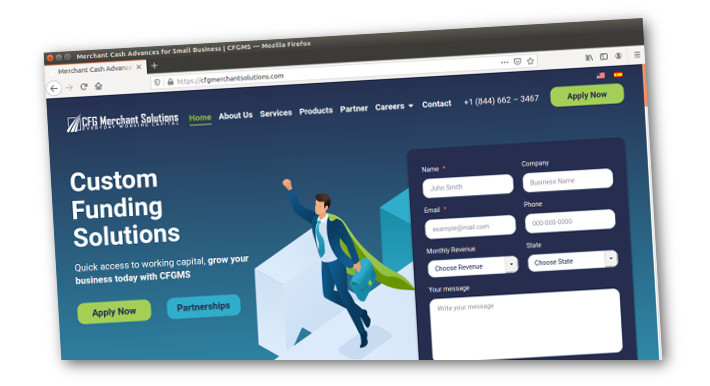 – CFG Merchant Solutions, LLC (“CFGMS”), a technology-enabled specialty finance and alternative funding provider, announced the closing of a $20.0 million investment-grade rated corporate note financing from a group of leading U.S.-based institutional investors. The transaction was assigned a BBB rating by a nationally recognized statistical ratings organization.
– CFG Merchant Solutions, LLC (“CFGMS”), a technology-enabled specialty finance and alternative funding provider, announced the closing of a $20.0 million investment-grade rated corporate note financing from a group of leading U.S.-based institutional investors. The transaction was assigned a BBB rating by a nationally recognized statistical ratings organization.
Since its founding in 2015, CFGMS has a proven track record of asset performance and profitability, and has funded more than $1.0 billion to over 25,000 small and medium-sized businesses (SMBs) across diverse industries throughout the U.S. The Company plans to use proceeds from the issuance to refinance a portion of existing debt and support continued growth of the business.
“Across the U.S. there are millions of healthy SMBs looking for financing to grow. This sector, however, is increasingly under-served by traditional financial institutions,” said Andrew Coon, Chief Executive Officer of CFGMS. “This transaction will provide CFGMS with additional flexibility and enable the Company to continue to grow our business and deliver valuable capital to customers.”
Bill Gallagher, President of CFGMS, added, “Given the volatile capital markets, the successful closing of this transaction demonstrates that institutional investors have confidence in our platform and financial performance, and expect to see continued growth. This credit investment significantly increases our funding capabilities and enhances our ability to take advantage of potential market opportunities.”
Brean Capital, LLC served as the Company’s exclusive financial advisor and sole placement agent in connection with the transaction.
About CFG Merchant Solutions
CFG Merchant Solutions (“CFGMS”) is an independent, technology-enabled alternative funding platform focused on providing capital access to small and mid-sized businesses that have historically been undeserved by traditional financial institutions and may have experienced challenges obtaining timely financing. The Company uses its historical transactional data, proprietary underwriting, predictive analytics, and electronic payment technologies and platforms to assess risk, and provide access to flexible and timely capital.
For additional information about the Company, visit: https://cfgmerchantsolutions.com/.
Contact:
Name: Richard Polgar
Title: Chief Financial Officer
rpolgar@cfgms.com
The Merchant Cash Advance Journey from Broker to Funder
February 7, 2023 As merchant cash advances have become a popular financing option for small businesses in recent years, it has quickly become obvious how lucrative it can be to make the transition from working the phones to working the deals.
As merchant cash advances have become a popular financing option for small businesses in recent years, it has quickly become obvious how lucrative it can be to make the transition from working the phones to working the deals.
The transition from broker to funder can provide significant benefits: by becoming a funder, you have the opportunity to control the entire process from start to finish. Driving the deals, you have the opportunity to make more money, and can establish relationships with banks and payment processing systems that align with your business goals. You can choose a CRM system that best fits your needs and invest in a strong legal and accounting infrastructure to ensure compliance and accountability. Additionally, as a funder, you have the ability to diversify your portfolio and make informed decisions on the types of deals you want to fund, which can lead to higher returns and more stable growth.
While many brokers have the gift of the gab and expertise to sell the advances, they may not have the necessary knowledge of systems and processes in place to manage the risk and operational aspects of the business to go to the next level. Additionally, funders, more than brokers, have the relationships with banks, CRM systems, collection firms, and legal entities that are necessary to run a successful merchant cash advance funding business. The lack of these critical components can limit the growth potential of a broker.
The evolution from a broker to a funder is not just a matter of expanding the business, but it requires a complete overhaul of the systems, processes, and legal frameworks. In this article, let’s explore the key steps that a broker needs to take to become a successful merchant cash advance funder.
Step 1: Having The Right Bank Account
Having a proper bank account is the first step towards becoming a merchant cash advance funder.
Traditional banks, such as Chase and Bank of America, are not built for the rapidly brave new world of financing options, and instead cater to the old models. If they see (what they deem to be) ‘irregular’ incoming and outgoing payment just as you begin offering your first few deals, they can cause you a lot of stress, and even shut your account.
Researching all the options available before you begin funding deals is crucial to build up your business and to avoid stress down the road.
Step 2: Finding The Best ACH Payment Processor
The best way to accept the daily payments owed to you is by working with an ACH payment processor that understands the MCA space. While some traditional banks do offer ACH ‘pulling’ for free, their service is often tied to the amount you have sitting in your account at the bank, which means it’s not working for you to make more. For example, some stipulate that your account needs to have three times the amount that you’re planning to pull daily, just sitting there. So if you’re pulling $200,000 a day, now you have to have $600,000 just sitting there in reserve, which you can’t use to fund other deals you could be making money on.
Instead, finding ACH payment processors that specifically understand the business and your needs will free you up to strive to collect as much as you can, every single day. While it might cost you a little bit, you have the option to now make that calculation of whether it’s better to have free ACHs or have the money available to fund deals and make money off of. A wise man would tell you the latter is the right way to go.
Step 3: Picking A CRM System
A CRM system is an essential tool for tracking the deals, payments, and collections. There are about 8-10 mainstream CRM systems that cater to merchant cash advance funders, and the choice of the CRM system depends on the volume of deals you fund, the presence of syndicators, and the type of deals you fund.
Pick a system that best serves your needs: how it accounts for sub deals and tranches, whether it helps you identify the best and worst performing deals, and if it generates the reports you need to make the most informed choices for your business going forward.
Step 4: Setting Up Your Legal Framework
Setting up a legal framework for contracts is an important step in the journey from a broker to a funder. A proper legal framework ensures that the contracts are enforceable and protects your interests.
It is worth consulting with a lawyer familiar with merchant cash advance to help you prepare thorough contracts for the businesses you advance, your ISO’s and brokers, to ensure you are secure from any attempts to avoid payment and backdooring on your own deals.
Step 5: Collections
In an ideal world, every deal a MCA business funds would get paid pack easily and smoothly, but frequently, that is not the case. Too often, business owners prove why they needed the advance in the first place, and repeat the mistakes and bad habit that puts them in a perilous financial position once again.
If they don’t pay you, your business will quickly begin to suffer and face increasing cash flow problems if you don’t handle it quickly, so having a reliable collection system is crucial for the success of a merchant cash advance funder. It’s good to ensure you understand your options to give yourself the best chance of recovering what you’re owed, including working with a third-part collections firm. The choice of a collection firm depends on the success rate and the level of support provided. A good collection firm should have a well-prepared collection attorney, provide timely support and have a strategy to collect on delinquent merchant cash advances.
Step 6: Accounting
Proper accounting is essential for tracking the overall health and viability of your company. It’s also especially important if you have a partnership or investment in place.
Better Accounting Solutions has been the leading accounting firm in the MCA industry for over a decade, and seen how successful a company can be when all their books are in order and the tremendous pressure and stress caused when it’s not.
Working with an accountant that is familiar with the industry and systems will help you ensure your business is legally compliant, trending in the right direction, and that all deals are in a good place.
Step 7: Lead Sourcing
You’ve set up the business, now you need customers!
There are several ways to find people and businesses who could use a merchant cash advance from your new business. You could reach out to family and friends, research and cold-contact people online or work with lead-generation agencies who will send you lists of hot prospects. Additionally, if you’ve already done all the previous steps listed here, then you can speak to the people you’re already familiar with in the industry to point prospects your way. For example, Better Accounting Solutions has drawn on our years of experience in the industry to connect new funders with brokers we know and trust.
Typically, if you’re a broker becoming a funder, than you already have the relationships with people who can direct customers to your new venture, but I always advise our clients to avoid backdooring or doing something with even the slightest inference of unethical business practices; its bad karma and can only hurt you down the line.
So there you have it, the seven steps of going from broker to funder, and taking your merchant cash advance journey to the next level. Wishing you the best of luck!

See Post... merchant growth, sharpshooter funding, thinking capital... |
See Post... merchant growth, greenbox capital, , https://debanked.com/canada/directory/... |


